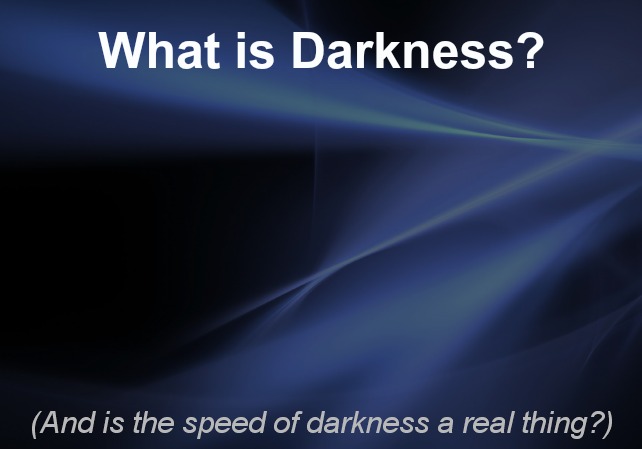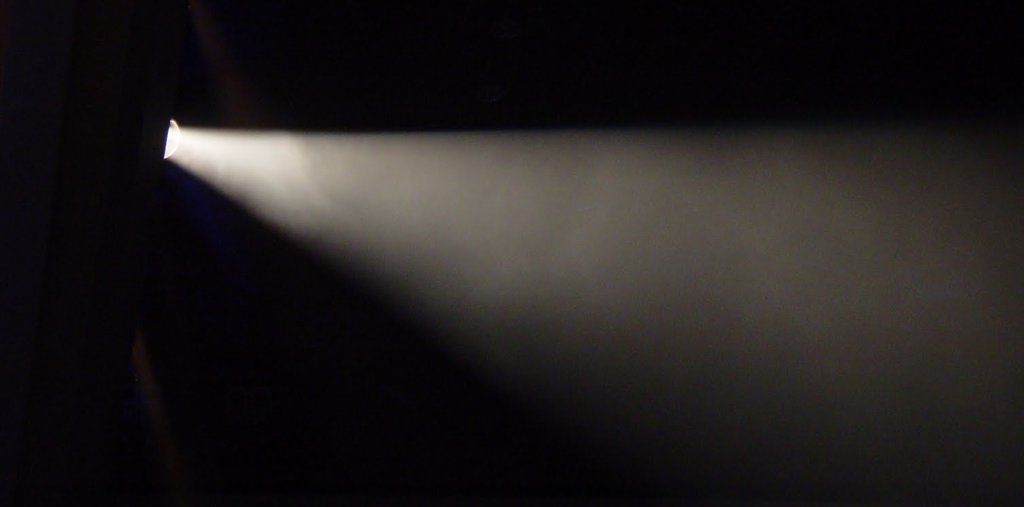
This question, like many others, centers on a negative concept. There are a few of these running around and it is fairly common to get tripped up by them, but part of the fun in science is when you can apply negative concepts to positive ones, helping us better understand how each facet of the universe work together AND independently. One such negative concept asks: “What is darkness?” “And is there such a thing as the speed of darkness?”
QUANTIFYING THE SEEMINGLY IMPOSSIBLE
In order to know what the speed of darkness is, or anything else about it, we would have to quantify it. What is it? Well darkness is the absence of light. So darkness isn’t a thing, it is instead a lack of a thing. Therefore questions about characteristic of darkness, which is an absence instead of a presence, become hard to define.

The most correct answer to the question would be that darkness has no speed. In order for something to have speed, it must be able to move relative to other bodies. Since darkness doesn’t actually exist, it cannot move and therefore cannot have a speed. However, since the level of illumination of a given area cannot change at a different rate than the speed of light, you could also equate it as having the speed of light, though less correctly.
A THOUGHT EXPERIMENT:
I’ll use an example to make my point. Lets say you are in a room which is completely sealed off from the outside world, and nothing can enter it (particularly light). In this room you have a perfect light bulb. It has no warm up or cool down time, when you flip the switch, it instantly starts or stops producing a steady stream of light. In addition to this, let’s say that the walls do not reflect light, but instead completely absorb it. For convenience, let’s make the room round and have the light bulb at the center. Most of this can’t actually be done, but this is still a helpful thought experiment.

Now lets say we suddenly turn off the light bulb. The light will travel at a predictable speed from the bulb, and as it does, it will leave behind it an area without any light at all (meaning the light in the room is receding at the speed of light. Note that the darkness isn’t advancing, but the light is receding. As I’ve said earlier, darkness isn’t actually a thing; therefore, it cannot have a speed.
However the lack of light in our hypothetical room is spreading at the speed of light. Colloquially, this is a minor point. It is however a very important distinction. Darkness doesn’t exist, and therefore cannot spread or move, but light (which obviously does exist) can. And in doing so it can also leave an absence of light, and this absence will grow or shrink at the speed of light.
THE SPEED OF DARKNESS IN A NUTSHELL:
Since darkness isn’t a tangible thing, it is hard to properly quantify its characteristics. It doesn’t have a speed, but light will always advance or recede at the universal speed limit (186,000 miles per second, or 299,792,458 meters per second)